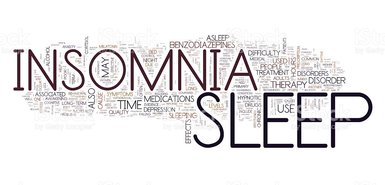|
This week is national sleep awareness week, so it seemed appropriate to look into a problem that many people are faced with when it comes to trying to get good night’s sleep. Insomnia is one of the most common sleep disorders that is prevalent in around 40% of adults. People who suffer with insomnia can have difficulty falling asleep, or staying asleep long enough that they feel refreshed the next morning. Individual cases of insomnia can range from mild to extreme, with some struggling to sleep at all. Patients with insomnia see it affecting their daily life and may feel tired, lethargic, be distracted or find it hard to concentrate. Most suffer with occasional episodes that come and go, however for some it can become more chronic. Persistent insomnia can have more serious health implications and impact on your quality of life. Sometimes is it not clear what triggers insomnia, but it's usually associated with:
There are a number of things you can do to try to prevent insomnia, from changing your sleep routine to avoiding screen time up to an hour before bed. But the key is to try and get the mind and body to relax enough that you can fall asleep. Acupuncture, an ancient Chinese practice, has been linked to improved sleep and has also been shown to help treat insomnia. The Evidence for Acupuncture and Insomnia: A preliminary report found that in patients with anxiety, acupuncture increased the production of nighttime melatonin, a hormone that regulates sleep, and total sleep time. Those patients who were receiving acupuncture treatment were also able to fall asleep faster, were less aroused at night, and reported less stressed. The researchers concluded that, “Acupuncture treatment may be of value for some categories of anxious patients with insomnia.” Another study found that acupuncture improve the quality of sleep in patients with HIV, for whom sleep disturbance and disorders are a common problem. The researchers found that, “Sleep activity and sleep quality significantly improved following 5 weeks of individualised acupuncture…” Acupuncture is also used to relieve chronic pain, which is a common contributor to sleeplessness, the theory behind this is explained in full here. Whatever the reason for patients seeking acupuncture, due to the relaxing nature of the treatment, many find that it noticeably improves their sleep quality as well. If you’re having trouble sleeping, acupuncture may be helpful for you. If you have any questions please get in touch or share with anyone you think might find this helpful. Thanks for reading!
1 Comment
Leave a Reply. |
AuthorRachel Hemblade Archives
February 2024
Categories |
|
|

 RSS Feed
RSS Feed
